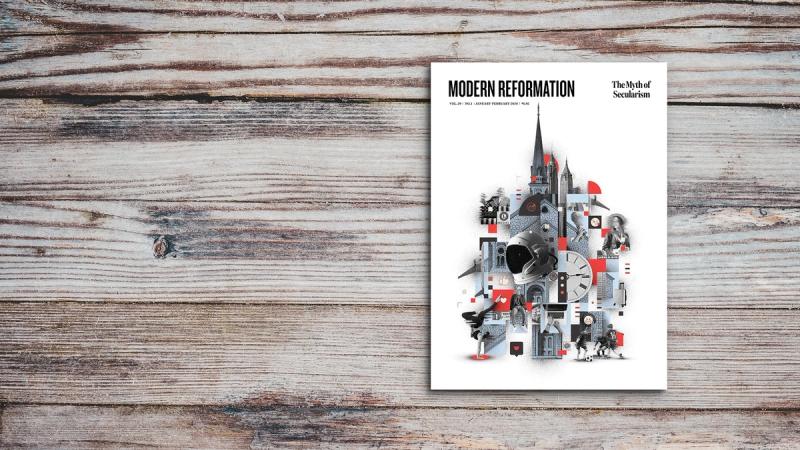The Talking Heads’ song “Once in a Lifetime” is punctuated by a series of questions that all begin with, “You may ask yourself . . . ” As Western culture continues its dangerous decline, many pundits find themselves repeating those lyrics and asking themselves, “How did we get here?” Over the next two issues of Modern Reformation, we’re going to arrive at some answers that will help you make sense of the world in which you live. More than that, our hope is that knowing more about the state of our world will encourage you to lean into it with the good news of Jesus Christ.
In this issue, we tackle the myth of secularism. Since the time of Freud, social scientists have predicted that as a society grows in wealth and knowledge, its religious character will decline. Early secularists believed that religion is a projection of unmet needs of the poor and disenfranchised. Modern thinkers point to the decline of religious participation in Western Europe as proof of this secularization thesis and a harbinger of the future of religion in America. But is this thesis correct? Do people become less religious, or do they change their religious practices to better accommodate new (but still religious) beliefs that exist harmoniously with their surrounding culture?
To help us answer this question, we begin with an interview with the director of Lutheran Theology and Public Life, Dr. Uwe Siemon-Netto, who is also a former religion editor for UPI and AP. In Michael Horton’s interview, Dr. Siemon-Netto explains the deeply religious foundation of much of our modern thinking, as well as ways Christians can speak into a culture at odds with many of our beliefs.
Next up is our good friend David Zahl with an excerpt from his new book, Seculosity. “Seculosity” is a term Zahl coined to help explain the religious impulse that continues to haunt even committed secularists. As Zahl explains in his article, this impulse is what drives modern men and women to assign religious meaning (and practices) to everyday events and life choices. It’s not that we have become less religious, Zahl argues, but that we have invested everything with religion and have cast ourselves in the role of the savior. It’s a recipe for disaster that can be met only by the claims of Jesus Christ.
Finally, we conclude with notes from the battlefront—literally! Chaplain Stephen Roberts of the United States Army takes us on a journey into the hearts and minds of America’s warriors—men and women who no longer have even the memory of the civil religion that used to permeate our nation’s military. In his article, Chaplain Roberts uses the soldiers to whom he ministers as a kind of test case for our own ministry in a rapidly changing world.
Stay tuned for our next issue in which we will explore the ancient foundations of our modern confusion. Now is a great time to renew your subscription or purchase one as a gift for a friend. Read together and be encouraged by the promise of the gospel that continues to challenge and change people in every era.
Eric Landry executive editor






